Quotes & Sayings About Being Marooned
Enjoy reading and share 7 famous quotes about Being Marooned with everyone.
Top Being Marooned Quotes
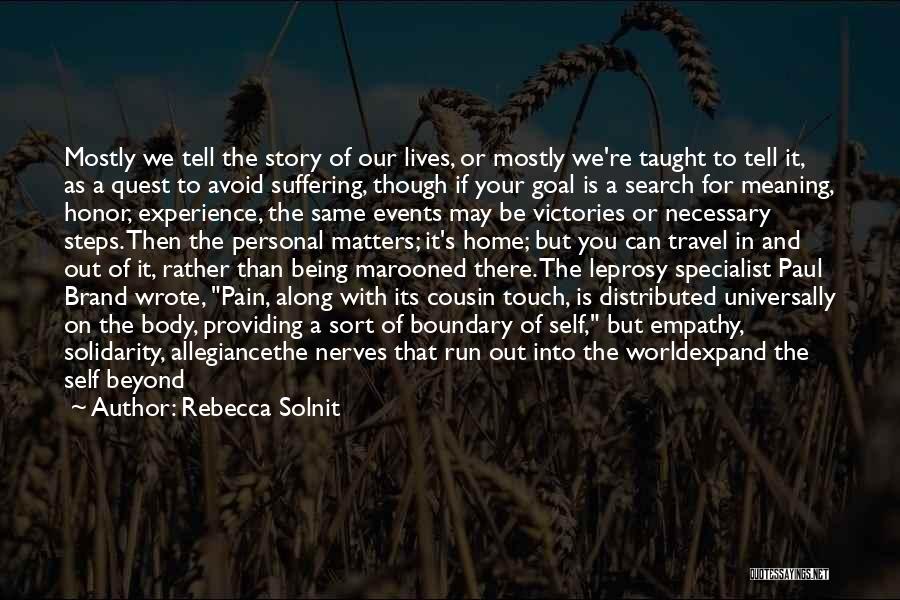
Mostly we tell the story of our lives, or mostly we're taught to tell it, as a quest to avoid suffering, though if your goal is a search for meaning, honor, experience, the same events may be victories or necessary steps. Then the personal matters; it's home; but you can travel in and out of it, rather than being marooned there. The leprosy specialist Paul Brand wrote, "Pain, along with its cousin touch, is distributed universally on the body, providing a sort of boundary of self," but empathy, solidarity, allegiance
the nerves that run out into the world
expand the self beyond its physical bounds. — Rebecca Solnit
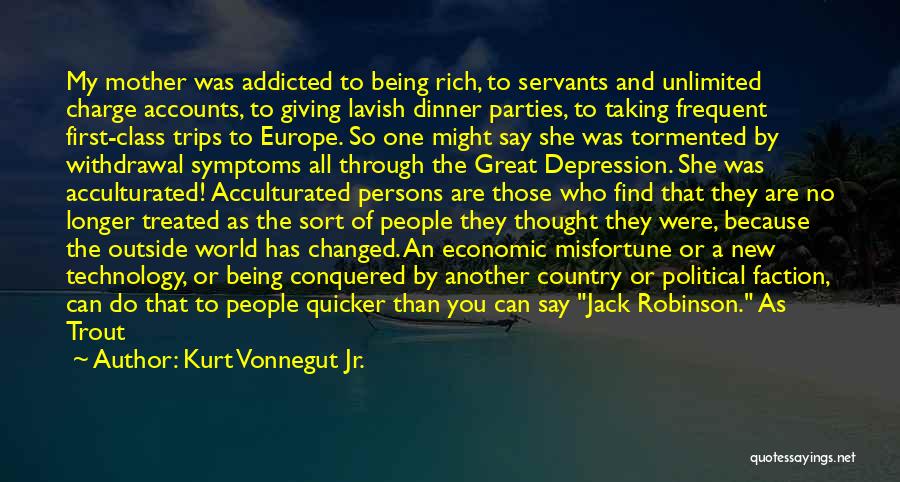
My mother was addicted to being rich, to servants and unlimited charge accounts, to giving lavish dinner parties, to taking frequent first-class trips to Europe. So one might say she was tormented by withdrawal symptoms all through the Great Depression. She was acculturated! Acculturated persons are those who find that they are no longer treated as the sort of people they thought they were, because the outside world has changed. An economic misfortune or a new technology, or being conquered by another country or political faction, can do that to people quicker than you can say "Jack Robinson." As Trout wrote in his "An American Family Marooned on the Planet Pluto": "Nothing wrecks any kind of love more effectively than the discovery that your previously acceptable behavior has become ridiculous." He said in conversation at the 2001 clambake: "If I hadn't learned how to live without a culture and a society, acculturation would have broken my heart a thousand times." *** — Kurt Vonnegut Jr.
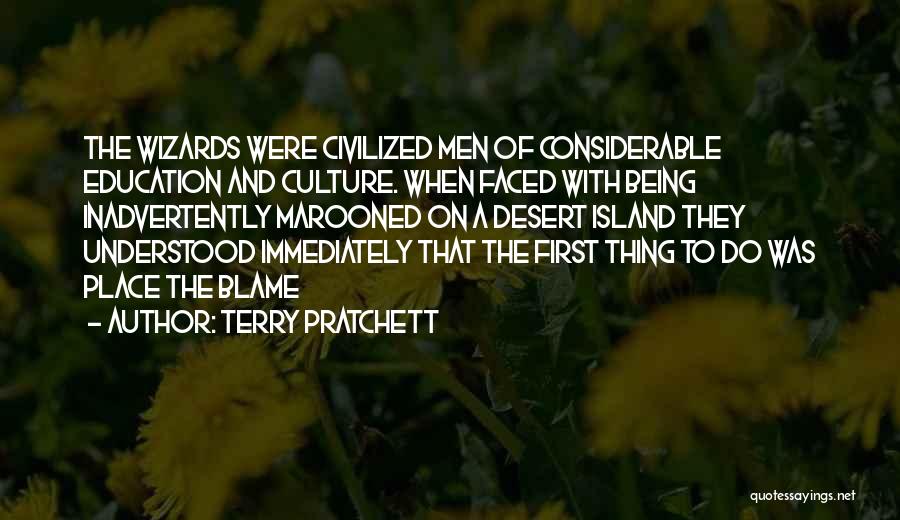
The wizards were civilized men of considerable education and culture. When faced with being inadvertently marooned on a desert island they understood immediately that the first thing to do was place the blame — Terry Pratchett
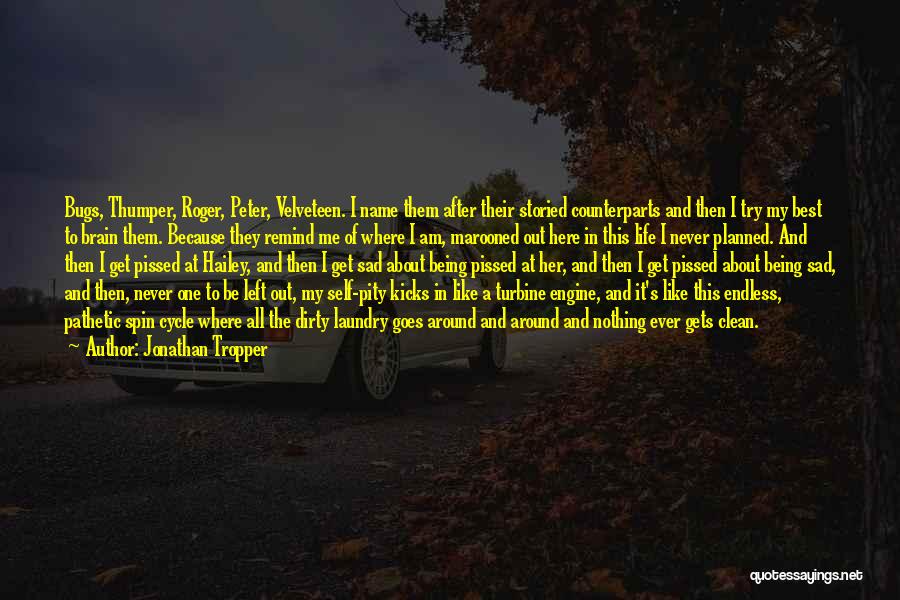
Bugs, Thumper, Roger, Peter, Velveteen. I name them after their storied counterparts and then I try my best to brain them. Because they remind me of where I am, marooned out here in this life I never planned. And then I get pissed at Hailey, and then I get sad about being pissed at her, and then I get pissed about being sad, and then, never one to be left out, my self-pity kicks in like a turbine engine, and it's like this endless, pathetic spin cycle where all the dirty laundry goes around and around and nothing ever gets clean. — Jonathan Tropper
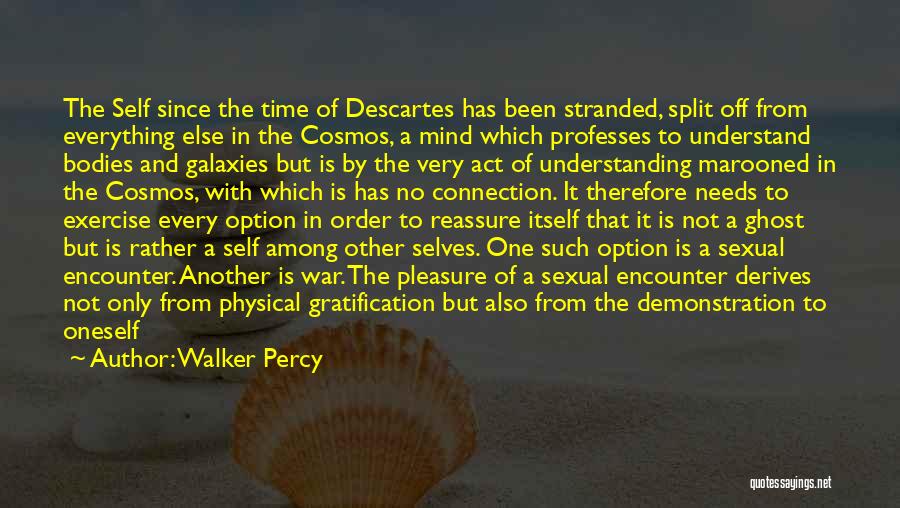
The Self since the time of Descartes has been stranded, split off from everything else in the Cosmos, a mind which professes to understand bodies and galaxies but is by the very act of understanding marooned in the Cosmos, with which is has no connection. It therefore needs to exercise every option in order to reassure itself that it is not a ghost but is rather a self among other selves. One such option is a sexual encounter. Another is war. The pleasure of a sexual encounter derives not only from physical gratification but also from the demonstration to oneself that, despite one's own ghostliness, one is, for the moment at least, a sexual being. Amazing! Indeed, the most amazing of all the creatures in the Cosmos: a ghost with an erection! Yet not really amazing, for only if the abstracted ghost has an erection can it, like Jove spying Europa on the beach, enter the human condition. — Walker Percy
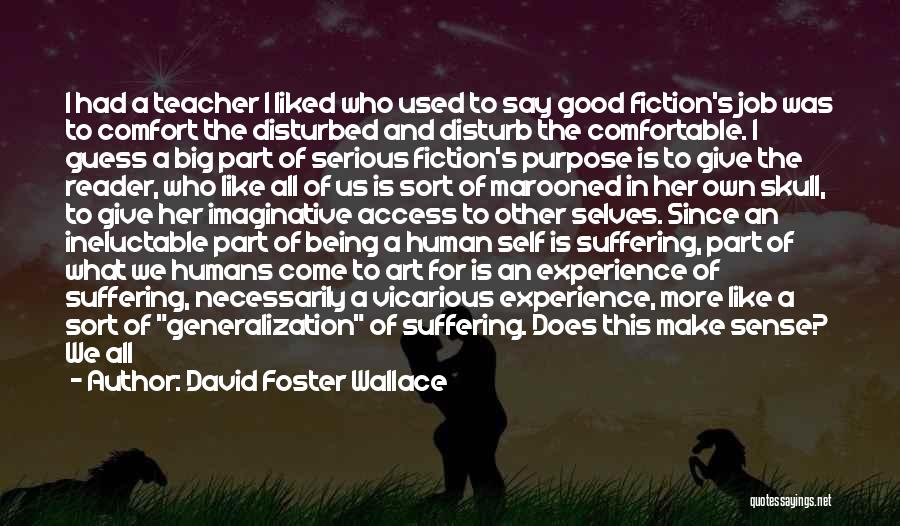
I had a teacher I liked who used to say good fiction's job was to comfort the disturbed and disturb the comfortable. I guess a big part of serious fiction's purpose is to give the reader, who like all of us is sort of marooned in her own skull, to give her imaginative access to other selves. Since an ineluctable part of being a human self is suffering, part of what we humans come to art for is an experience of suffering, necessarily a vicarious experience, more like a sort of "generalization" of suffering. Does this make sense? We all suffer alone in the real world; true empathy's impossible. But if a piece of fiction can allow us imaginatively to identify with a character's pain, we might then also more easily conceive of others identifying with our own. This is nourishing, redemptive; we become less alone inside. — David Foster Wallace
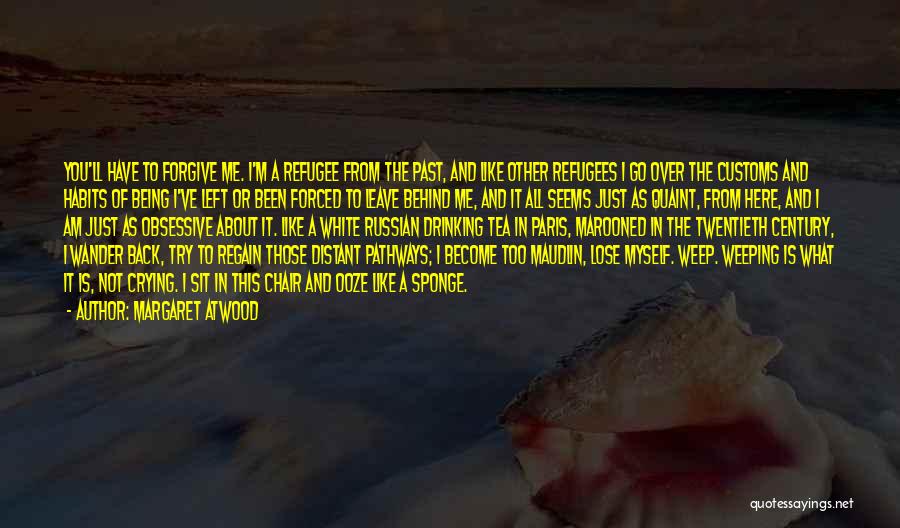
You'll have to forgive me. I'm a refugee from the past, and like other refugees I go over the customs and habits of being I've left or been forced to leave behind me, and it all seems just as quaint, from here, and I am just as obsessive about it. Like a White Russian drinking tea in Paris, marooned in the twentieth century, I wander back, try to regain those distant pathways; I become too maudlin, lose myself. Weep. Weeping is what it is, not crying. I sit in this chair and ooze like a sponge. — Margaret Atwood





